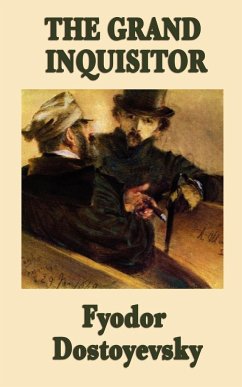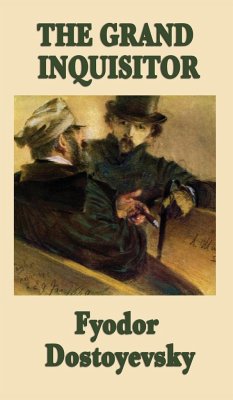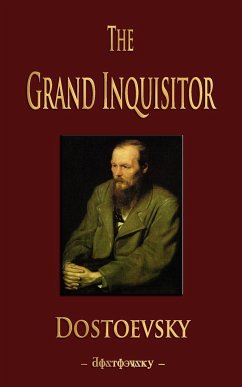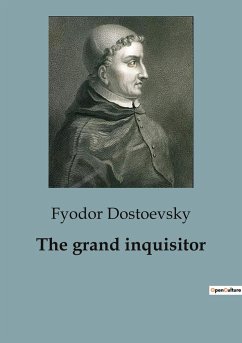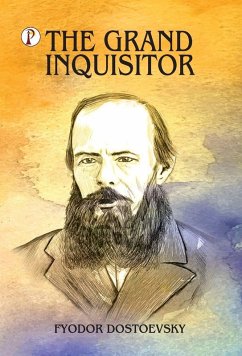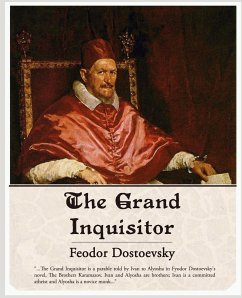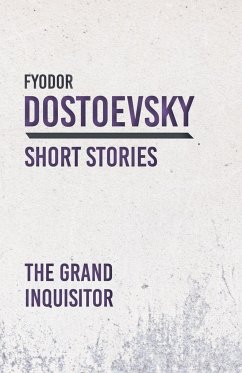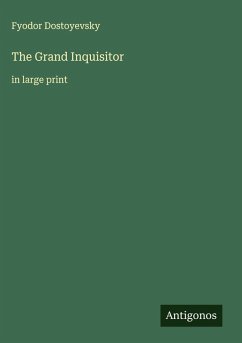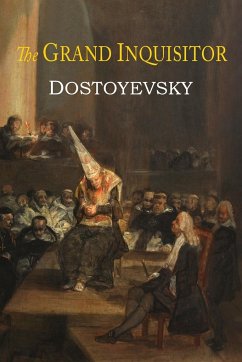
The Grand Inquisitor
Versandkostenfrei!
Versandfertig in 1-2 Wochen
9,99 €
inkl. MwSt.

PAYBACK Punkte
5 °P sammeln!
2016 Reprint of 1948 Edition. Full facsimile of the original edition, not reproduced with Optical Recognition Software. "The Grand Inquisitor" is part of an extended dialogue within Dostoyevsky's novel "The Brothers Karamazov." It is told by Ivan, who questions the possibility of a personal and benevolent God, to his brother Alyosha, a novice monk. "The Grand Inquisitor" is an important part of the novel and one of the best-known passages in modern literature because of its ideas about human nature and freedom, and its fundamental ambiguity. The tale is told by Ivan with brief interruptive que...
2016 Reprint of 1948 Edition. Full facsimile of the original edition, not reproduced with Optical Recognition Software. "The Grand Inquisitor" is part of an extended dialogue within Dostoyevsky's novel "The Brothers Karamazov." It is told by Ivan, who questions the possibility of a personal and benevolent God, to his brother Alyosha, a novice monk. "The Grand Inquisitor" is an important part of the novel and one of the best-known passages in modern literature because of its ideas about human nature and freedom, and its fundamental ambiguity. The tale is told by Ivan with brief interruptive questions by Alyosha. In the tale, Christ comes back to Earth in Seville at the time of the Inquisition. He performs a number of miracles (echoing miracles from the Gospels). The people recognize him and adore him, but he is arrested by Inquisition leaders and sentenced to be burnt to death the next day. The Grand Inquisitor visits him in his cell to tell him that the Church no longer needs him. The main portion of the text is devoted to the Inquisitor explaining to Jesus why his return would interfere with the mission of the Church.



